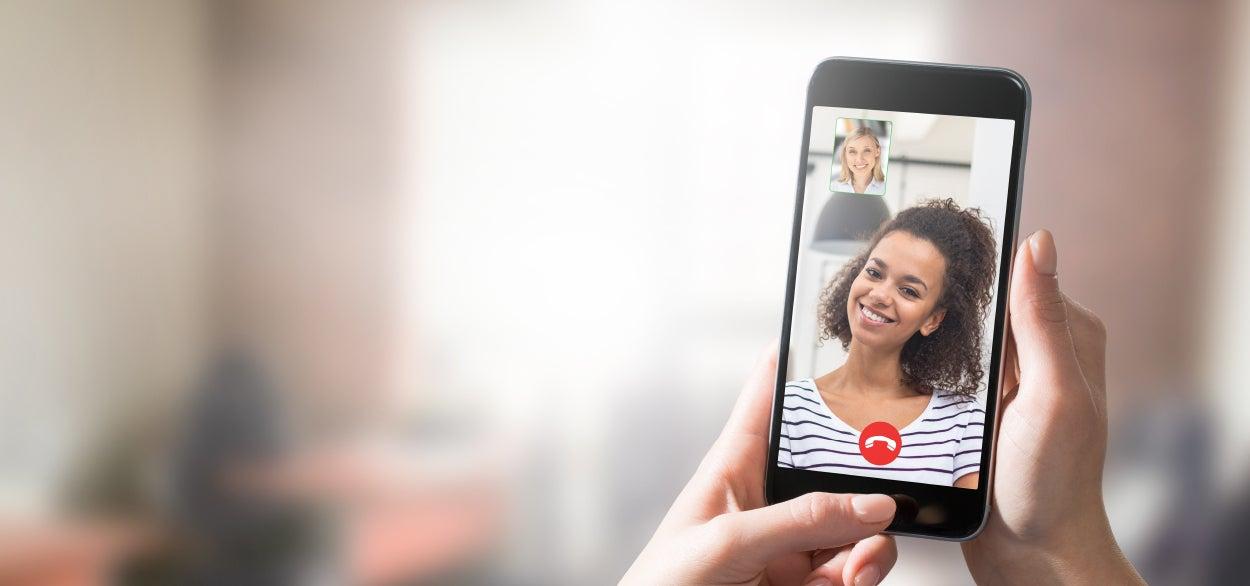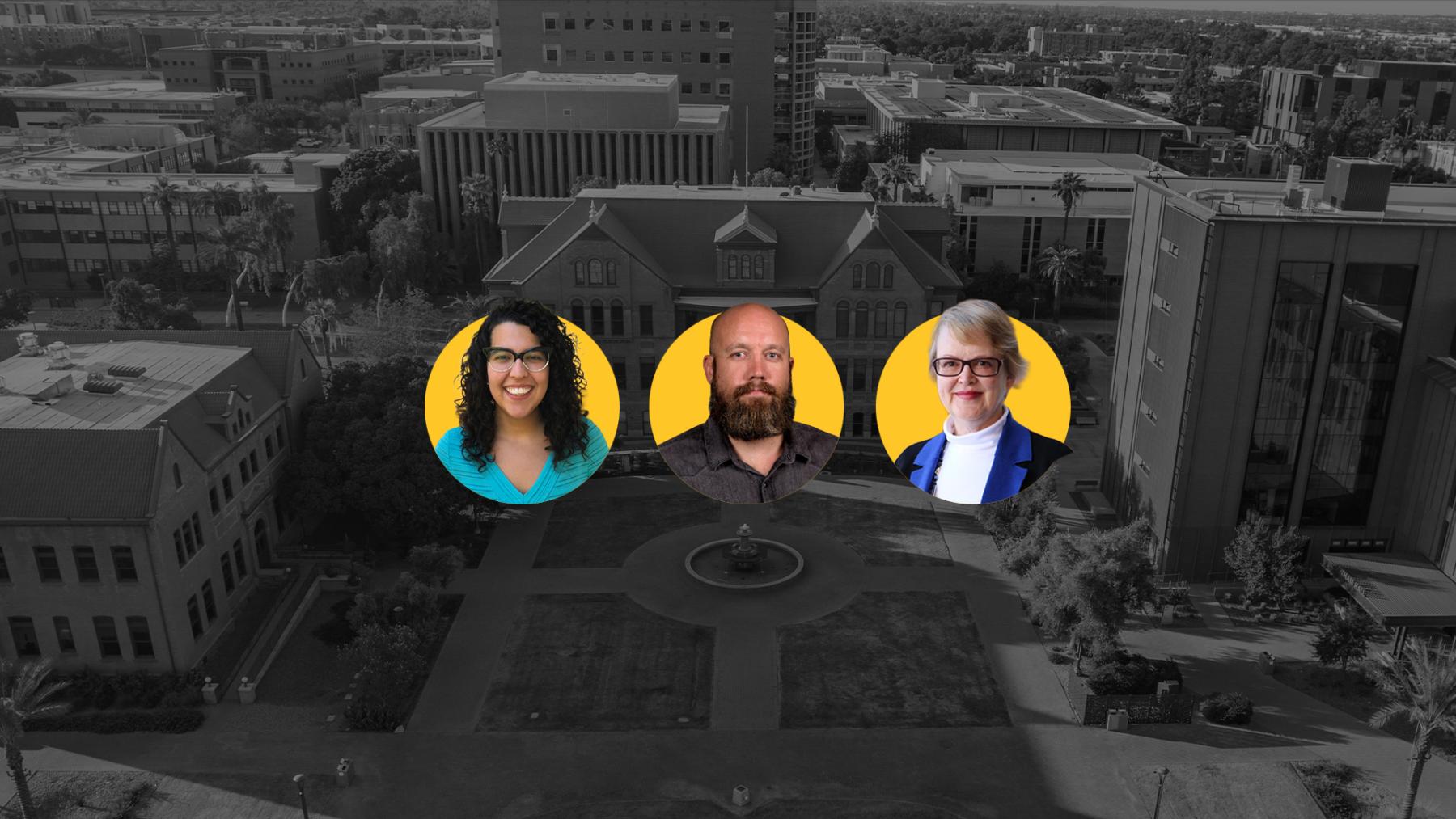
Grad Life at ASU: Students share coping strategies for social distancing during COVID-19 pandemic
In a matter of weeks, COVID-19 has upended our society, effectively shutting down the economy as governments and healthcare workers battle the unforeseen pandemic flooding the nation. In particular, students have faced unexpected and drastic changes to their lives; at ASU, classes have been moved online for the rest of the semester, events and graduation ceremonies have been canceled, postponed or moved virtually and students have had to move home. We asked graduate students to tell us: what’s it like to be social distancing and what have you done to cope with the changes?
Q: What’s it like to be social distancing?
Jonathan B, Ph.D. Electrical Engineering: I’ve been spending more energy on activities that are only possible in solitude. For instance, I’m trying to spend more time meditating and have increased from maybe 10 minutes before to about an hour per day. I think getting comfortable with that practice may be helpful to get through distancing and also when things return to normal. I’m also anticipating the crossroads that await following the end of my grad program. In order to prepare for that, I’m spending more time reflecting on my journey so far and writing various pieces - mostly exploring important events, relationships, or themes in my life. Some are in Spanish and some I have shared with family or other close relationships. I’ve brainstormed some notes of gratitude for former teachers and have sent one so far. I was a bit surprised at how appreciative my quantum mechanics professor was to receive it. Overall, I’m interested in exploring areas that I may have just charged through previously, so that when I do reach the upcoming crossroads, I have greater awareness when choosing how to direct myself.
Sarah S, Ph.D. Educational Policy & Evaluation, Mary Lou Fulton Teachers College: I think practicing social distancing has slowed life down in some regards, while speeding it up in others. I try to keep to a schedule, to differentiate the days from each other and from the weekends. I think I wore yoga pants the first week, but after that, I recognized I needed to create a more productive structure. In terms of my work, a lot is changing. Having to reimagine how to transition research from in-person, school-based to online is a big mental switch and that work takes time. In a way, it is like I have also had to process a lot of feelings of mourning, the disappointment for canceled conferences, loss of in-person mentoring events at the American Education Research Association, as well as what would have been my first solo paper presentation at AERA. That's a lot to process, and it is iterative. So, in a way I can totally see how there is also a lot of sadness in missed opportunities to see people and for professional work/development. Lots of plans have changed both globally and locally for us as individuals.
Peter C, Ph.D. Geography (Geographical Sciences and Urban Planning): Hard. I'm an introvert, but the kind of introvert that enjoys having background noise and human contact. There is very little of that when you are living by yourself.
Q: What solutions have you tried and challenges have you faced with social distancing?
Jonathan B, Ph.D. Electrical Engineering: I’m being sure to allow myself to fully move through distressing news, whether personal or global, as it arises. My parents were in Honduras when the situation really picked up so it was a process to get them back to their home in the US. I was then worried about their health in the days/weeks following since they traveled through a busy Atlanta airport and have some risk factors. Thankfully, they have been able to settle in at their home and haven’t had any symptoms so far. One of my best friends, who lives in my home state, tested positive for the virus so I’ve also worried about his health. I’ve tried to contribute to his recovery by ordering some food and juices to his apartment. I’m trying my best to just focus on what I can control and not get too carried away with things that I am helpless about. It is a challenge not being able to be present with people like I am used to but I’m trying to make the most out of the time alone.
Sarah S, Ph.D. Educational Policy & Evaluation, Mary Lou Fulton Teachers College: I am finding that I need to rebuild and remind myself of a lot of my prior work practices, like recreating my daily routines. For example, each morning I get ready and after I am dressed, I still make coffee (or tea) and after eating I sit down at my desk. Sometimes I listen to fun, relaxing or familiar music and I work on my daily planner which has mindfulness and gratitude activities built into it. I find that when I start out my day by listing three things I am grateful for and excited about it helps anchor and calm me and gives me a sense of optimism. Back in January, I read the book, "Bird by Bird: Some instructions for writing and life" by Anne Lammot. The title of the book has become my motto - bird by bird - class prep task bit by bit; writing one sentence at a time, one half of a day at a time. The big lesson I am learning or constantly reflecting on is what it means to be "productive." I think, for myself, my productivity now has a lot more deliberate choices tied to maintaining wellness, connection to humanity, and maintaining connections to others.
Peter C, Ph.D. Geography (Geographical Sciences and Urban Planning): Taking walks/drives certainly help. I also routinely check in with people. I think a key has been to try and keep some semblance of routine. Although I'm not the best at getting an early start to the day, I keep a routine and avoid watching television until the evening so that I have space in the day that my brain knows is to be more focused on work/household tasks.
More stories from the Graduate Insider

Finding your flow: Managing the graduate writing process
Graduate writing can feel like a marathon—long, demanding, and full of unexpected detours. But as Tristan Rebe, Program Manager for the Graduate Writing Center, reminded students in the Grad15: Managing the Writing Process webinar, writing is not about perfection—it’s about progress. “The best dissertation is a done dissertation,” Rebe said, quoting Robert Frost: the best way out is through.

Promoting resilience and well-being in Ghana — and across the globe

From practice to presentation: How to deliver a winning faculty job talk
Giving a job talk can feel like the most high-stakes presentation of your academic job search. It’s not just a research seminar—it’s your opportunity to demonstrate vision, communication skills, and fit within a department. In a recent Lunch and Learn, faculty members Associate Professor in School of International Letters and Cultures, Anita Huizar-Hernandez, Professor in School of Life Sciences Jeffrey Jensen, and Professor in Department of Physics Patricia Rankin shared concrete strategies to help graduate students and postdocs succeed as future faculty candidates.